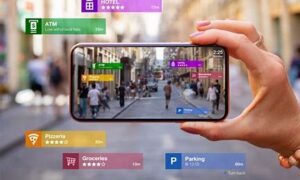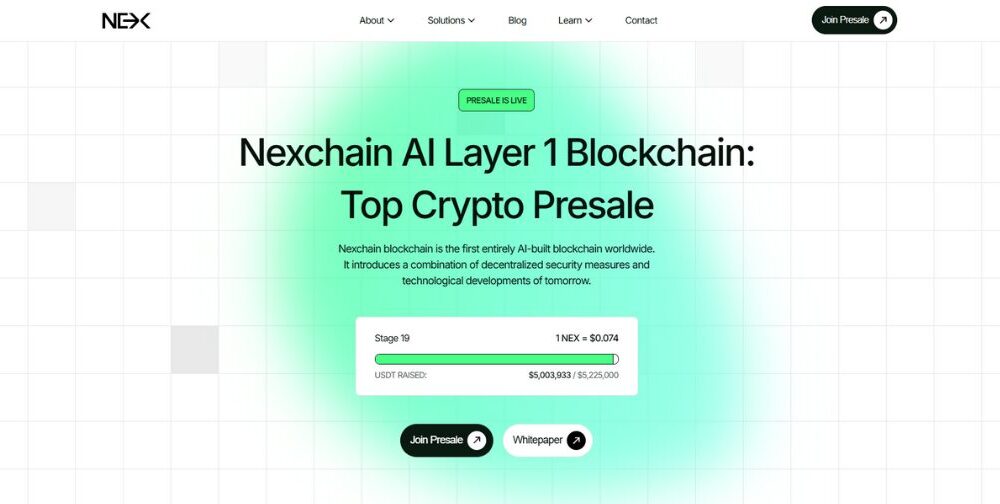Artificial Intelligence (AI)— and specifically Generative Artificial Intelligence (also known as Gen AI)— has continued to make inroads into nearly all areas of our lives. In a market worth around $136.6 billion, according to GrandView Research, the potentials are enormous and forward-thinking businesses are tapping in. Forbes estimates about 4 in 5 companies— that’s a whopping 83% of companies today— deem AI to be a top priority in their business strategy. Retail executives are no exception, with Analytics Insight’s survey revealing 80% of retail executives expect their businesses to adopt AI automation by 2025.
Mobile e-commerce, a key subsection of the retail space, hasn’t been left behind by the wild wave of AI innovation. A report by SEMrush shows the global e-commerce market has tripled in size in the past five years— a trend fueled by the pandemic— with another report by Statista showing mobile e-commerce sales now make up 60 percent of all e-commerce sales around the world, reaching $2.2 trillion in 2023. To deal with the incoming rush, mobile e-commerce has been one of the early adopters of AI and, most recently, Gen AI.
From chatbots that answer customers’ queries to intelligent virtual assistants that assist with purchases, mobile e-commerce is being disrupted one technology at a time. These virtual assistants leverage natural language processing (NLP) and AI-powered algorithms to better understand the needs of each customer and tailor their journey. From an operational perspective as well, AI has proved instrumental in optimizing supply chain and detecting fraud. This demonstrates the wide range of use cases in which AI is shaping the shopping experience.
One area of prominence where AI finds full expression is personalization: AI algorithms offer more customized experiences and drive tailored marketing campaigns by analyzing customer data. Personalization at such a custom level improves customer engagement and significantly aids conversions. It’s no surprise that VWO Engage found e-commerce businesses were the biggest senders of push notifications at 22.03% of the total notifications sent— a reflection of how tailored shopping journeys will shape the e-commerce space going forward.
There are several ways AI is shaping shopping journeys and making digital experiences more personalized, but below are some of the most common examples.
Retail giants at the forefront of utilizing AI in shaping customers’ journey
Amazon is one of the best examples of retail giants leading the way in shaping customers’ journeys through AI. By using AI throughout its platform, Amazon has been successful in addressing challenges and streamlining the purchasing process for both buyers and sellers: Creating captivating ways purchasers can discover products both during the purchase moment and at earlier stages of the buying journey, boosting user satisfaction and eliminating obstacles users encounter.
On top of it, Amazon has launched self-checkout stores across the US where AI facilitates shoppers through the entire shopping process, knowing what was picked, returned, and eventually processed.
E-commerce giant eBay is also integrating AI, with emphasis on computer vision, into its technological stack in an attempt to better understand what the company’s customers prefer. According to the company, this move will enable it to deliver more personalized shopping experiences to customers. With the billions of data parameters its models have been trained on— including images, customer interactions, customer preferences, and more— the company aims “to deliver transformational value that impacts customer experience on a large scale,” said eBay’s Chief AI Officer Nitzan Mekel-Bobrov.
While these retail giants are leading the charge and leveraging AI to reshape the customer shopping journey, below are some other ways shopping journeys can be further re-imagined.
Time optimization
Harnessing user context, AI algorithms optimize the timing of notifications, ensuring they reach users when they’re most receptive. This enhances engagement and conversion rates significantly. On top of that, Gen AI can produce on-season, on-brand and personalized content that comes via notifications for each customer. You are walking out of your doorstep and it is raining, you receive a notification, alongside the prediction for even heavier rains a few days from this point. Now that’s a time-optimized notification.
Product suggestions based on comprehensive context
Delving deeper than mere user-item correlations, AI factors in diverse elements like weather, seasonality, user activity, and individual preferences. This robust approach tailors product suggestions to suit not just the user’s needs but also their context, fostering a more intimate shopping experience. This relationship can take away the mistake of suggesting items relevant for other similar users, but still irrelevant for the context of this specific user. Comprehensive context takes away assumptions and boosts the probability of conversion.
With tools like Lerna— the first Hyper-personalized Recommender-as-a-Service for mobile apps— mobile users can now get more relevant suggestions. Apart from its easy integration, Lerna also offers user-context awareness— which helps companies personalize their offers based on the user’s context at any moment. It’s personalization on steroids, enabling companies to delight their customers with an AI platform that “selects the right content based on user preferences, history and real-time context,” according to the company’s website.
Personalized descriptions and imagery
Gen AI also comes into play in product descriptions, crafting personalized descriptions that align with the user’s style and background. This extends beyond mere text to curating images that resonate with individual tastes, enhancing the allure of the shopping journey. Shoppers want to be unique, to be different; this intersection of Gen AI and e-commerce makes that possible. Research indicates that 80% of customers prefer buying from a brand providing customized experiences. Carefully planned personalization strategies with due permission of data usage can drive customer satisfaction to higher levels.
Real-world examples abound, demonstrating Gen AI’s ability to tailor shopping journeys. From mobile apps sending contextual notifications to platforms curating content through Gen AI, the transformative power of the latter is creating success stories across the e-commerce and retail worlds.



































